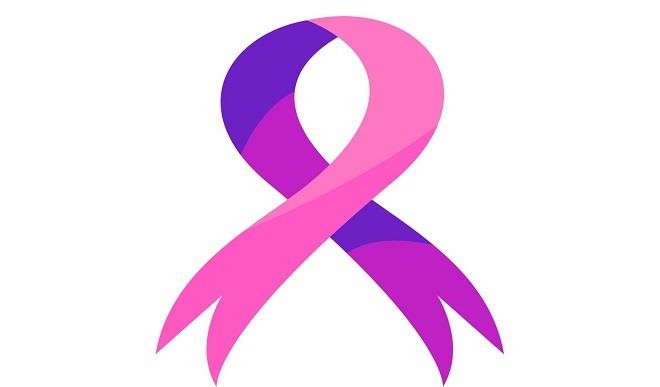How new radiotherapy machine helps with our treatment – Cancer patients
Cancer patients accessing care at the National Hospital, Abuja, have said respite has come their way with the donation of an additional Linear Accelerator (LINAC) radiotherapy machine two years after the Federal Government launched the same type of machine at the hospital. The new machine was donated by the Nigerian National Petroleum Corporation (NNPC) and […]

Cancer patients accessing care at the National Hospital, Abuja, have said respite has come their way with the donation of an additional Linear Accelerator (LINAC) radiotherapy machine two years after the Federal Government launched the same type of machine at the hospital.
The new machine was donated by the Nigerian National Petroleum Corporation (NNPC) and Shell Nigeria Exploration and Production Company Limited (SNEPCo) and was commissioned in August.
It is an open secret that cancer patients had been suffering untold hardship accessing treatment due to the poor state of the radiotherapy machine in the hospital for some years.
The patients lamented that their treatment was often interrupted, postponed and sometimes even stopped because of interrupted power supply to the radiotherapy machine, and that because of that the machine broke down.
Patients had to wait for weeks and months on end. The situation got so bad that all the radiotherapy machines in all the nine centres in the country were not working at the same time; leaving patients stranded, with some dying as a result.
In 2015, for instance, cancer patients from different parts of the country receiving treatment at the National Hospital staged a peaceful protest to draw government’s attention to their suffering.
Radiotherapy is a form of treatment involving the use of high-energy radiation to treat cancer. It is part of the treatment plan of almost half of all people who have cancer. Others include surgery, medication, chemotherapy and immunotherapy.
In Nigeria, it is estimated that about 10,000 cancer deaths are recorded annually while 250,000 new cases are recorded yearly. Experts say the country has been witnessing increasing cancer cases. This makes it expedient to access effective cancer care.
Succour came the way of the patients when the Federal Government in December, 2017, flagged off the LINAC radiotherapy treatment facility at the hospital.
A 47-year-old cancer patient who simply identified as Oiza has been receiving care at the hospital in the last six years, said the Federal Government machine led to improvement of services, adding that services also got a lot better recently with the commissioning of the LINAC radiotherapy machine donated by NNPC SNEPCo.
Oiza said, “Since then there has never been any interruption in my treatment, and I am getting better by the day.”
Julius (18) said he started accessing treatment for the tumour in his legs in July this year and that he had been accessing quality services.
He said, “I only heard stories that the machine here used to break down, and that there used to be a lot of crowd. But I have never seen that since I started coming here now.”
The Managing Director of SNEPCo, Mr. Bayo Ojulari, said the radiotherapy machine was the first of its kind in Nigeria and that the intervention would go a long way to change the story of cancer diagnosis and treatment in Nigeria for good.
Mr. Ojulari said, “We have also built the skills of the health workers critical to the operation and maintenance of the radiotherapy machine and supporting facilities.”
The Chief Medical Director (CMD) of the National Hospital, Abuja, Dr. Jaf Momoh, said the radiotherapy machine had been installed and that the hospital had started treating patients with it.
He said the hospital commenced cancer treatment 20 years ago and was the first hospital to have the LINAC radiotherapy machine in the country, but that the same machine became epileptic after 17 years.
He added that the Federal Government machine donated two years ago and the second one donated by Shell helped the hospital clear the backlog of patients waiting for radiotherapy treatment, and that some of those patients were earlier going to Ghana and other countries, but that with the commissioning of the second Linac machine “it is no longer necessary for patients to travel out of the country for radiotherapy treatment.”
The reporter visited the cancer centre at the hospital a number of times and met fewer crowds and well organised treatment schedule on daily basis in contrast with what was obtainable a few years back.
Findings also reveal that the donated linear radiotherapy machine had shorter scanning time, better accuracy, does not put organs in the body at risk and gives a dose of radiation straight to tumours.
Two patients who craved anonymity said they had not missed any of their sessions and that they spent less time at the hospital and had not travelled to other treatment centres on account of malfunction or maintenance of the machines.
In a statement, SNEPCo said the organisation recognise the value of a healthy nation and had developed a targeted approach to improve access to health and strengthen healthcare system in Nigeria.
It said its cancer care project was aimed at establishing a sustainable centre of excellence in cancer care in partnership with the Federal Ministry of Health and the National Hospital.
SNEPCo has five signature health intervention projects:
-Lagos Medical Emergency Response Improvement Programme (Lagos MERIP).
– Health system strengthening project at Ogijo Primary Healthcare Centre in Ogun State.
-Integrated Humanitarian Assistance Project (IHAP) for Internally Displaced Persons (IDPs) in Dikwa, Bornu State.
-Centre for Cancer Care at the National Hospital, Abuja.
-Community care programmes (Health in Motion) across Nigeria.
Experts said the provision of requisite equipment and service delivery at hospitals in Nigeria expanded access to cancer care for sufferers and also helped to stem the tide of medical tourism, as well as huge economic losses from Nigerians going to India and other parts of the world to seek treatment.
